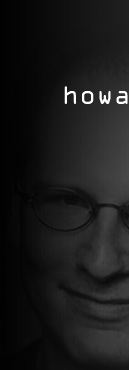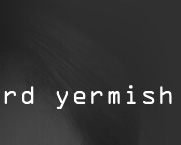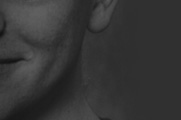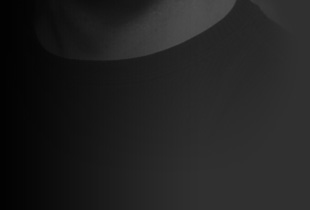 |
  |
|---|---|
 |
|
 |
Interview with Howard Yermishby Susan Segal from the Choral Arts Society of Philadelphia Newsletter From what source(s) did you draw the inspiration for this commission?Obviously, the inspiration for this piece was the Strand text itself. Turning 30 back in November, I found myself reminiscent of my own past. During most of the composition of this piece I was expecting my first child and the piece was completed shortly after the birth of my daughter. I was very excited to work with Choral Arts, since I've been going to CASP concerts literally since the first few years of its inception. I was thrilled to have the opportunity to write a piece that would be performed at its 20th anniversary concert. The powerful relationship that I have with my father on many different levels gave me access to the depth of meaning in Strand's Leopardi. The text was clearly from the point of view of the father, talking to his child, and his expression of his current anguish in light of his past experience. My initial reaction to Strand's words was that he was being too cynical for a Gen-X'er like me. However, the deeper that I explored my own feelings about the words, I found that the cynicism was replaced by a sense of timelessness. Strand says that the world does "not give you any hope. Not even hope." Hope is really something that we create for ourselves and "whatever our ancestors knew" time will take that away. The pain that Strand expresses is not about the world that we live in, it is about the world that we create inside our own minds and the persistent power that our own inner dialog has over our experience as human beings. At the beginning of the text, Strand expresses the image of his child sleeping on a beautiful night and how "nothing at this moment bothers" his child. It is a wondrous and timeless moment that created a persistent musical flow through the entire piece. This frozen moment in time allows us to explore own own inner dialog, which as Strand expresses, is filled with the pain of being alone in the world. In working on the piece, I realized that I needed to use some additional words to provide an almost completely innocent perspective. I wanted Strand's words to be even more powerful and I felt that the presence of a second text would provide access to the depth of meaning in Leopardi, perhaps a meaning that most, including myself, would not experience initially when reading or hearing the text. I wanted to express how consistent the world can be and the meanings that we impose on our own version of the world can create the tragedy of our existence that allows us to feel the pain of wounds that are many years and generations old. Could you describe your composition process? How long did the process take to complete? How did you select the texts? The orchestration?Most of my writing occurs entirely inside my head for almost the entire process. I compose by the principle that if an idea is good today, you will remember it tomorrow. It is not until almost the entire piece has solidified in my head that I will then start notating the piece. It can be nerve racking when I forget an idea from yesterday, but once I get over that, I get a better idea for the composition. Most of my pieces take anywhere from six months to two years to write, although I'm usually working with several at a time. The Strand text was selected by Donald Nally as part of the commission. The poetry for the boys chorus was written as a juxtaposition of perspective to the Strand. I see that my own little poem only serves as a vehicle for the boys to sing. In my opinion, the perspective of the Strand text did not relate to a boys chorus, and I needed something that would make sense for the boys to sing. The process of this piece was very typical of my work. I lived with the music in my head for about three months and then started physically writing the piece down once I had established the entire framework for the piece. It may seem daunting to others, but it is really quite natural for me to compose this way. What got you interested in composing?I'm really not sure. It is something that I always enjoyed doing. Even when I first took piano lessons as a kid, I found that instead of practicing, I would write my own little pieces. I was fortunate that my piano teacher nurtured this and that my parents tolerated years of drumset and percussion lessons. Eventually my sheer love of creating music brought me to composing, and composing has been one of the most positive personal experiences of my own self-expression. For me, composing is not just about writing music. It is about finding the reason why I am writing the music. It is really difficult to explain since it even sounds like a semantic argument to me sometimes. Some composers talk about writing music that others will like while others may use theoretical justifications for their own music. I once attended an arts festival where several composers went on and on about why we should like their music. When it came to my turn, I simply said that "I was willing to be locked in a room for an entire year with only my own compositions playing non-stop." This actually scared several other composers who responded that they couldn't conceive of living this way. Maybe that is why I didn't like their music since it had nothing to do with them, only the reasons that they provided. Composing is about self-expression. Perhaps that is why I keep turning down film composing opportunities in Los Angeles because so much of this industry is about the product, not self-expression. I really like many scores that are produced today for films, it just isn't what I'm interested in creating myself. What do you see as trends in music for the next decade and for the next century?People always ask me this and I honestly don't know. My crystal ball is still in the shop for repairs. Given the diversity of the later-half of the twentieth century and the access to technology, I think that the diversity will continue as more people use technology to assist them in writing their own music. In fact, I would love to live in a world where people used music or art as a vehicle for their own self-expression. I think if more people valued their own self-expression, this world would be a much friendlier place to live. What's next for you?My next project will be a series of electronic compositions for recordings. So many people enjoy music in their homes, offices, cars, and while exercising, that it seems natural for me to produce music specifically to be delivered from my head to their stereo system. Don't get me wrong, I absolutely love writing music for the concert hall, I've dedicated my entire career as a composer to that very thing. The only problem is that most people who are familiar with my music have only heard recordings. For most people, music only exists on CD, so why not write music designed specifically for that. Personally, I look forward to raising my daughter Rebecca and moving back to the Philadelphia area this summer. Living in Los Angeles for almost eight years has been plenty of fun, but I'd like to see the leaves change again. |

home • biography • compositions • audio gallery
http://www.howardyermish.com • howard@howardyermish.com
© 1990 - 2006 Howard Yermish. All Rights Reserved.
All music excerpts and audio samples contained on this site are protected by copyright. Any use or performance of music excerpts and/or audio samples must be licensed through the American Society of Composers, Authors, and Publishers. [www.ascap.com]